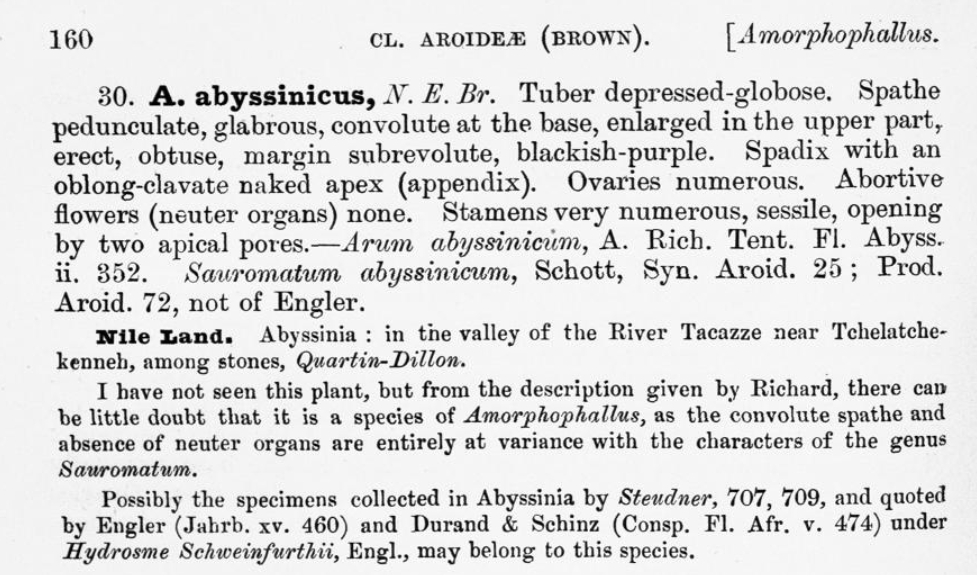AMORPHOPHALLUS ABYSSINICUS
Photo by Allan Galloway
SYNONYMS: Arum abyssinicum, Amorphophallus abyssinicus subsp. abyssinicus, Amorphophallus abyssinicus subsp. akeassii, Amorphophallus abyssinicus subsp. unyikae
DISTRIBUTION: Central Africa | Benin, Burkina, Cameroon, Caprivi Strip, Central African Republic, Chad, Ethiopia, Ghana, Guinea, Ivory Coast, Kenya, Malawi, Niger, Nigeria, Sudan, Tanzania, Togo, Uganda, Zambia, Zaïre, Zimbabwe
Doubtfully present in Somalia
CLIMATE: Unknown
ECOLOGY: It is a tuberous geophyte and grows primarily in the seasonally dry tropical biome.
SPECIES DESCRIPTION:
Tuber depressed-globose
INFLORESCENCE:
Spathe pedunculate, glabrous, convolute at the base, enlarged in the upper part, erect, obtuse, margin subrevolute, blackish-purple. Spadix with an oblong-clavate naked apex (appendix). Ovaries numerous. Abortive flowers (neuter organs) none. Stamens very numerous, sessile, opening by two apical pores.
VARIEGATED FORMS: N/A
ETYMOLOGY: This species’ epithet comes from the ancient region of Abyssinia, situated in the Horn of Africa, in the northern highlands of modern-day Ethiopia and Eritrea
NOTES: N/A
CULTIVARS: N/A
HYBRIDS: N/A

























